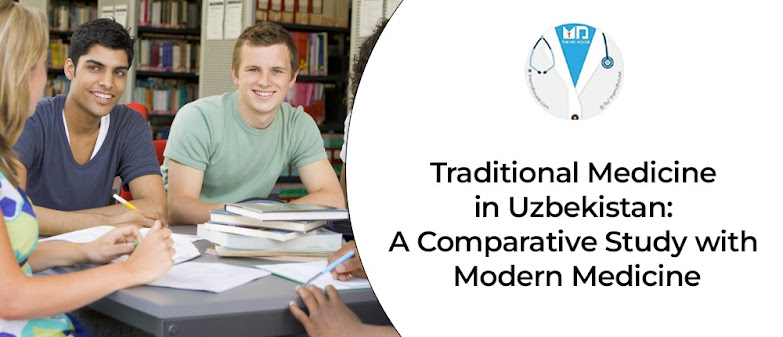Traditional Medicine in Uzbekistan: A Comparative Study with Modern Medicine
Traditional Medicine in Uzbekistan
Traditional medicine in Uzbekistan has been influenced by various cultures over the centuries, including Persian, Arab, and Chinese. It is based on the belief that the human body is made up of five elements: earth, water, air, fire, and ether. Traditional medicine practitioners in Uzbekistan use various herbs, minerals, and animal products to restore balance and harmony in the body.
One of the most common practices in traditional medicine in Uzbekistan is herbal medicine. Various herbs are used to treat different ailments, and the dosage and preparation of the herbs are carefully monitored to ensure their effectiveness. Another common practice is acupuncture, which involves inserting needles at specific points in the body to alleviate pain and promote healing. Cupping therapy is also used in traditional medicine in Uzbekistan, which involves placing cups on the skin to create a vacuum and promote blood flow.
Modern Medicine in Uzbekistan
Modern medicine in Uzbekistan has developed significantly in recent decades. The country has a well-established healthcare system that provides access to modern medical facilities and technologies. Modern medicine in Uzbekistan is based on scientific research and evidence-based practices. The country has made significant progress in improving healthcare outcomes, particularly in the areas of maternal and child health.
Comparison of Traditional and Modern Medicine in Uzbekistan
Traditional medicine in Uzbekistan and modern medicine have different approaches to healthcare. Traditional medicine focuses on restoring balance and harmony in the body, while modern medicine focuses on treating specific symptoms and diseases. While traditional medicine has been used for centuries, it lacks the scientific evidence and research that modern medicine provides. Modern medicine in Uzbekistan is more accessible and affordable than traditional medicine, which can be expensive and often requires specialized training.
Conclusion
Traditional medicine in Uzbekistan has a rich history and remains an important part of healthcare in the country. However, modern medicine has made significant strides in improving healthcare outcomes and is more accessible and affordable for most people. While both traditional and modern medicine have their strengths and weaknesses, a combination of the two can provide the best outcomes for patients. It is essential for healthcare providers in Uzbekistan to recognize the benefits of both traditional and modern medicine and work together to provide the best possible care for patients.

Comments
Post a Comment